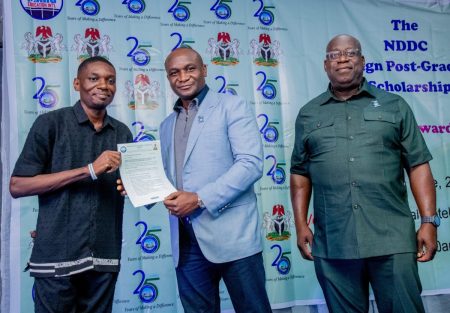
Port Harcourt — I saw my ENT consultant the other day in a somewhat annoying circumstance. I had scheduled an appointment to see him but a call came in suddenly that I had to do so weeks earlier than planned. As far as I could tell, the re-scheduling had nothing to do with any health consideration. It meant re-arranging my calendar and, as you can guess, one of the first things I was eager to discuss was the reason for the early call-out.
I don’t understand Yoruba, but I know the meaning of one word – Japa! It means “to run or escape.” Before you score me high of any linguistic feat, I arrived at the meaning only when the word gained currency with the exodus of professionals – especially from the health sector – from Nigeria to foreign countries. Japa is a verb. So, professionals are running, fleeing or escaping from Nigeria for greener pastures. My friend’s daughter trained at the University of Calabar as a doctor. She endured strikes that stretched her period of training and finally graduated. Just when we were settling down to the sight of her in white coat and stethoscopes hanging on her shoulders, she announced that she was relocating to the UK, where she is gainfully employed as I write.
I walked into the office of my consultant and was surprised by what I heard. He was leaving Nigeria for the UK and wanted me to come in before he did so. It became important to see me urgently because the hospital had not been able to find a replacement. He would leave without handing over to anyone, so he had to see me earlier than scheduled. I didn’t know whether to thank him or to cry for myself and Nigeria. Japa has hit home!
The exodus of health workers is getting more serious, and Nigerians are poorer for it. The World Health Organisation (WHO) reports that, at least 2,000 Nigerian doctors emigrate yearly to hotspots like the United States, the UK and Canada. The UK Medical Council reported last month that some 1,616 Nigerian doctors moved to that country in 2022 alone. Nigeria is the “third-largest non-UK graduate contributor of doctors to the UK workforce” behind India and Pakistan respectively. The Medical Council gave the total number of Nigerian-trained doctors in the UK as 11,055. This was in April. My consultant – and others – have added to the statistics.
The reasons for the Japa syndrome are not far to seek. The pay here is poor and bad. A doctor in the public service earns less than N300,000 but the average remuneration overseas is reported to be more than $2,000. Try to multiply that with the current exchange rate and you’ll get an idea of the gap. The working conditions are not any better. Doctors in public health institutions must improvise to conduct surgeries. Laboratory tests are incredibly expensive and often the results are unreliable. This scenario comes with telling consequences for the achievement of Universal Health Coverage as envisaged under the Sustainable Development Goals. The WHO recommends a ratio of one doctor to 500 people but in Nigeria it is one to 2,500. The situation with nurses is the same. Some 75,000 nurses left Nigeria in the past five years.
In response, the Federal Government declared a state of emergency in the health sector last month. This was at the 64th National Council on Health which met in Ekiti State having in attendance stakeholders from within and outside the country. The coordinating minister for Health and Social Welfare, Muhammed Ali Pate, confirmed what we already know when he said, “the nation’s health facilities are in bad shape.” The House of Representatives had earlier requested the federal Government to make good provisions for health in the 2024 budget.
We do not know what these moves will mean for the health sector. We also do not know how these will stop the exodus of Nigerian health professionals abroad. As I struggle with the reality of the departure of my ENT consultant, I’m reminded that there are many more Nigerians who did not even have the privilege of enjoying the services of doctors. These are the Nigerians who resorts to quacks or who treat themselves and eventually fall victim to superstitious beliefs. The Japa syndrome hits home in different ways.



